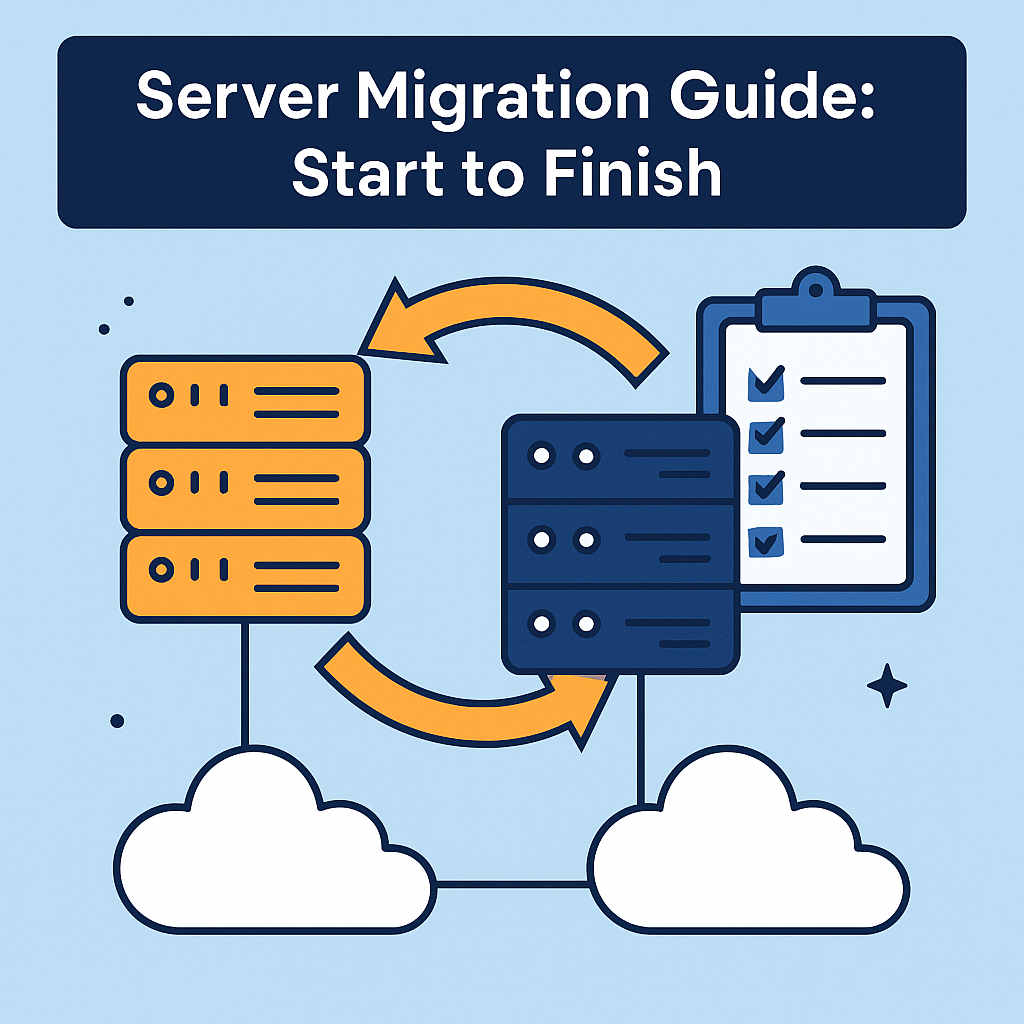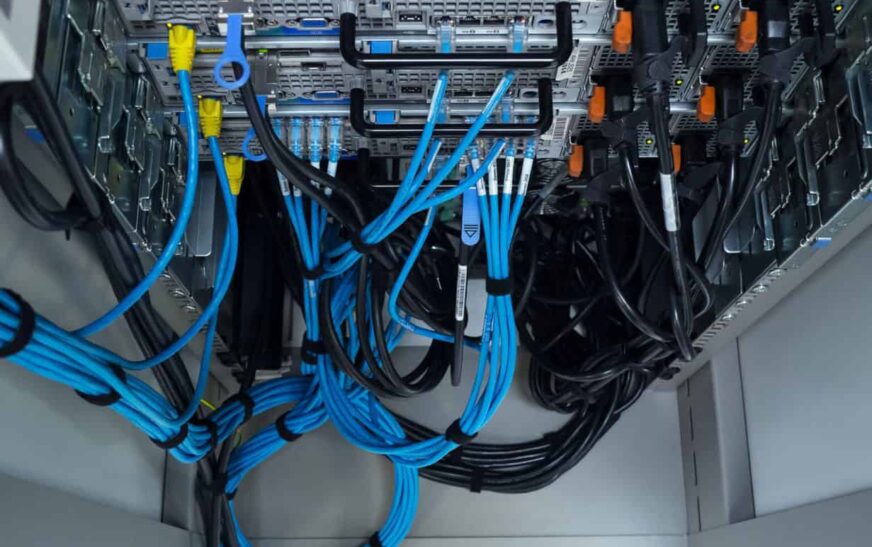How to Choose the Best Server for Your Business sets the stage for this enthralling narrative, offering readers a glimpse into a story that is rich in detail and brimming with originality from the outset. In the fast-paced world of business technology, selecting the right server is crucial for efficiency and growth.
Let’s delve into the key considerations that will guide you in making the best choice for your business.
Factors to Consider
When choosing a server for your business, it is crucial to consider several key factors to ensure that you select the best option to meet your specific needs. Here are some important factors to keep in mind:
Performance Requirements
- Consider the performance requirements of your business applications. Do you need a server with high processing power and memory to handle complex tasks?
- Assess the scalability of the server to accommodate future growth and increased workload demands.
Reliability and Uptime
- Look for a server with a proven track record of reliability and a high uptime percentage to minimize downtime and ensure continuous operations.
- Consider redundant components and backup systems to prevent data loss in case of hardware failure.
Security Features
- Ensure that the server comes with robust security features such as firewalls, encryption, and intrusion detection systems to protect your critical business data.
- Consider compliance requirements such as GDPR or HIPAA when selecting a server to ensure data privacy and regulatory adherence.
Cost and Budget
- Evaluate the total cost of ownership, including upfront costs, maintenance fees, and energy consumption, to determine the most cost-effective server option for your business.
- Consider leasing or cloud-based server solutions to reduce initial investment costs and provide flexibility for scaling up or down as needed.
Type of Business Operations, How to Choose the Best Server for Your Business
- Assess the specific needs of your business operations, such as e-commerce, data analytics, or content delivery, to choose a server type that is optimized for your industry.
- Consider factors like storage capacity, processing speed, and network connectivity to tailor the server to your unique business requirements.
Performance Requirements
When it comes to choosing the best server for your business, assessing performance requirements is crucial. Understanding the specific needs of your business will help you select a server that can handle the workload efficiently and effectively.To determine the performance needs of your business, you should consider factors such as the number of users accessing the server, the type of applications running on the server, and the amount of data being processed.
Speed up your website and enhance user experience with the help of digital tools. Learn how to optimize your website speed effectively by following the techniques shared in How to Use Digital Tools to Optimize Your Website Speed. Keep your audience engaged and satisfied with a lightning-fast website.
It’s essential to have a clear understanding of your business operations and growth projections to make an informed decision.
Performance Metrics to Consider
- Processor Speed: The processing power of the server is essential for handling multiple tasks simultaneously. A faster processor speed can improve overall server performance.
- RAM: Random Access Memory (RAM) plays a critical role in the server’s ability to handle applications and data. Having an adequate amount of RAM can prevent performance bottlenecks.
- Storage Capacity: The storage capacity of the server determines how much data can be stored and accessed. Consider the type of storage (SSD or HDD) based on your business needs.
- Network Bandwidth: A server with sufficient network bandwidth ensures smooth communication between devices and fast data transfer speeds.
- Uptime and Reliability: Choose a server with a high uptime guarantee to minimize downtime and ensure consistent performance for your business operations.
Scalability and Future Growth
When choosing a server for your business, one of the key factors to consider is scalability. Scalability refers to the ability of a server to grow and expand along with your business needs. It is crucial to select a server that can accommodate your future growth without requiring a complete overhaul of your infrastructure.
Maximize your social media advertising efforts with the best digital tools available. Discover the top tools recommended for managing social media ads in The Best Digital Tools for Managing Social Media Ads. Elevate your marketing strategies and reach a wider audience effectively.
Importance of Scalability
Scalability is essential for businesses looking to expand their operations without facing limitations imposed by their server infrastructure. By choosing a scalable server, you can easily add more resources, such as storage, memory, or processing power, as your business grows.
Embrace the power of digital tools to boost your conversion rates and take your business to new heights. By utilizing the right strategies outlined in How Digital Tools Can Improve Your Conversion Rates , you can attract more customers and turn leads into sales effortlessly.
- Allows for seamless expansion without significant downtime or disruptions.
- Ensures that your server can handle increased traffic and data processing demands.
- Helps optimize costs by only adding resources when needed, avoiding unnecessary expenses.
Evaluating Scalability Options
When evaluating scalability options for choosing a server, consider the following:
- Scalability features offered by the server provider, such as the ability to add more resources on-demand.
- Compatibility with virtualization technologies to facilitate easy scaling of resources.
- Potential for future upgrades and expansions without major hardware replacements.
Examples of Successful Scalability
Amazon Web Services (AWS) is a prime example of a company that successfully scaled its server infrastructure to accommodate tremendous growth. By offering scalable cloud services, AWS allows businesses to increase or decrease their resources based on demand, making it a popular choice for organizations of all sizes.
Another example is Netflix, which transitioned to a cloud-based infrastructure to support its global expansion. By leveraging scalable servers, Netflix can deliver high-quality streaming services to millions of users worldwide without compromising on performance.
Security Considerations
When selecting a server for your business, security should be a top priority. Ensuring the protection of sensitive data and preventing unauthorized access is crucial in today’s digital landscape.
Prioritize Security Features
- Encryption: Implementing strong encryption protocols to safeguard data in transit and at rest.
- Firewalls: Utilizing firewalls to monitor and filter incoming and outgoing network traffic.
- Access Control: Setting up robust access control measures to restrict unauthorized users from accessing critical information.
- Regular Updates: Keeping server software and security patches up to date to address known vulnerabilities.
Common Security Threats and Mitigation
- Malware: Install anti-malware software and conduct regular scans to detect and remove malicious programs.
- Phishing Attacks: Educate employees on spotting phishing attempts and implement email filtering systems.
- DDoS Attacks: Utilize DDoS protection services to mitigate the impact of distributed denial of service attacks.
- Data Breaches: Implement data loss prevention strategies and conduct regular security audits to identify vulnerabilities.
Enhancing Server Security
- Strong Password Policies: Enforce complex password requirements and implement multi-factor authentication for added security.
- Backup and Recovery Plans: Regularly backup data and test recovery procedures to ensure business continuity in case of security incidents.
- Monitoring and Logging: Utilize monitoring tools to track server activity and maintain detailed logs for analysis.
- Employee Training: Provide comprehensive security training to employees to raise awareness and reduce human error risks.
Cost Analysis: How To Choose The Best Server For Your Business
When it comes to choosing the best server for your business, conducting a thorough cost analysis is crucial to ensure you are making the most cost-effective decision. By evaluating the upfront costs, long-term implications, and potential savings, you can make an informed choice that aligns with your budget and requirements.
Strategy for Cost Analysis
- Compare upfront costs of different server options, including hardware, software, and installation fees.
- Consider ongoing expenses such as maintenance, upgrades, and support services.
- Factor in scalability options and potential future costs associated with expanding your server infrastructure.
- Calculate the total cost of ownership (TCO) over a certain period to determine the most cost-effective solution.
Long-Term Cost Implications
Opting for a cheaper server upfront may seem like a cost-effective choice, but it’s essential to consider the long-term implications. A higher-quality server with better performance and reliability may result in lower maintenance and upgrade costs over time, ultimately saving you money in the long run.
Real-World Examples
Many businesses have successfully optimized costs by selecting the right server solution. For example, a small e-commerce startup invested in a scalable cloud server that allowed them to pay only for the resources they used, resulting in significant cost savings compared to a dedicated server.
Similarly, a medium-sized company reduced its IT expenses by switching to a managed hosting provider that offered comprehensive support and maintenance services at a fixed monthly fee.
Final Thoughts
As we conclude this exploration of choosing the best server for your business, remember that the right server is not just a piece of hardware but a critical component of your operations. By understanding the factors mentioned here, you can make an informed decision that aligns with your business goals and sets you up for success in the ever-evolving digital landscape.






